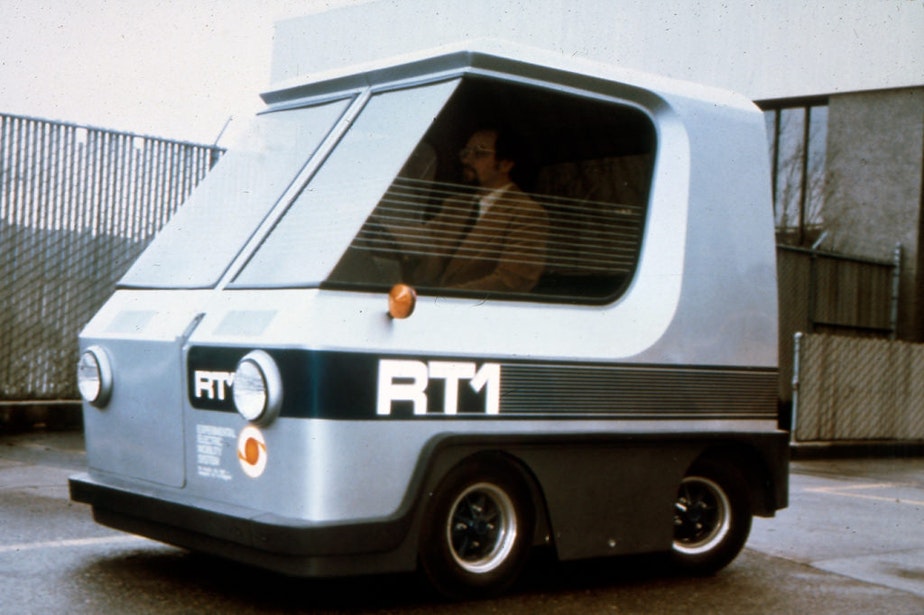Eat your heart out, Elon Musk: Behold these ugly electric cars from Seattle's past
Tesla tried to go mass market last year by starting production on the Model 3 – price tag starting at $35,000.
It didn’t go well.
Delivery lagged; the stock floundered; Tesla axed 9 percent of its workforce. CEO Elon Musk admitted that the company had not made an annual profit in 15 years.
But as far as electric car failures go, Musk's got nothing on the AMC Gremlin.
The Gremlin came with a similar promise: Make an affordable car that would skirt gas shortages in the 1970s.
It retailed at $3,500 and the marketing included the slogan, “If you can afford a car, you can afford two Gremlins.”
It looked promising on the surface: Twenty-four rechargeable six-volt batteries could go 50 miles at a top speed of 50 miles per hour per charge.
Also on the surface: It was ugly. And apparently wasn’t a very good drive.
The car didn’t last long.
But it now enjoys a grimacing nostalgia. It’s listed on Time magazine’s 50 worst cars, CBS News’ World’s 15 Ugliest Cars and when asked about it, this author’s father laughed and called it “an iconic disaster.”

The Gremlin wasn't the last attempt at making an electric vehicle in Seattle.
In 1976, City Light used funds from its research and development budget to create the RT1. It worked a little better than the Gremlin, getting 75 miles on one charge with just eight six-volt batteries.
Obviously, not that much better in the looks department, akin to something that would show up in a terrible 1980s movie ripe for parody.
But it had a goal ahead of its time. From Seattle Municipal Archives' site:
"The RT1 was conceptualized as part of a downtown restricted transportation zone from which most internal combustion vehicles would be barred. City Light envisioned this zone, full of electric cars like the RT1, as nearly eliminating transportation pollution in the urban core."
The city continues to drive towards this end. The Drive Clean Seattle plan aims for 30 percent of all vehicles to be electric by 2030. Ownership of electric vehicles in Seattle is already four times the national average, according to a 2017 report from the city.
One part of the plan is acknowledging how many people don't have a garage to install a home charging station. The Seattle Department of Transportation has announced this year a pilot program to install stations next to curbside parking spots.
Another barrier: up-front vehicle costs for the consumer. So somebody out there better start producing some more affordable electric vehicles.
